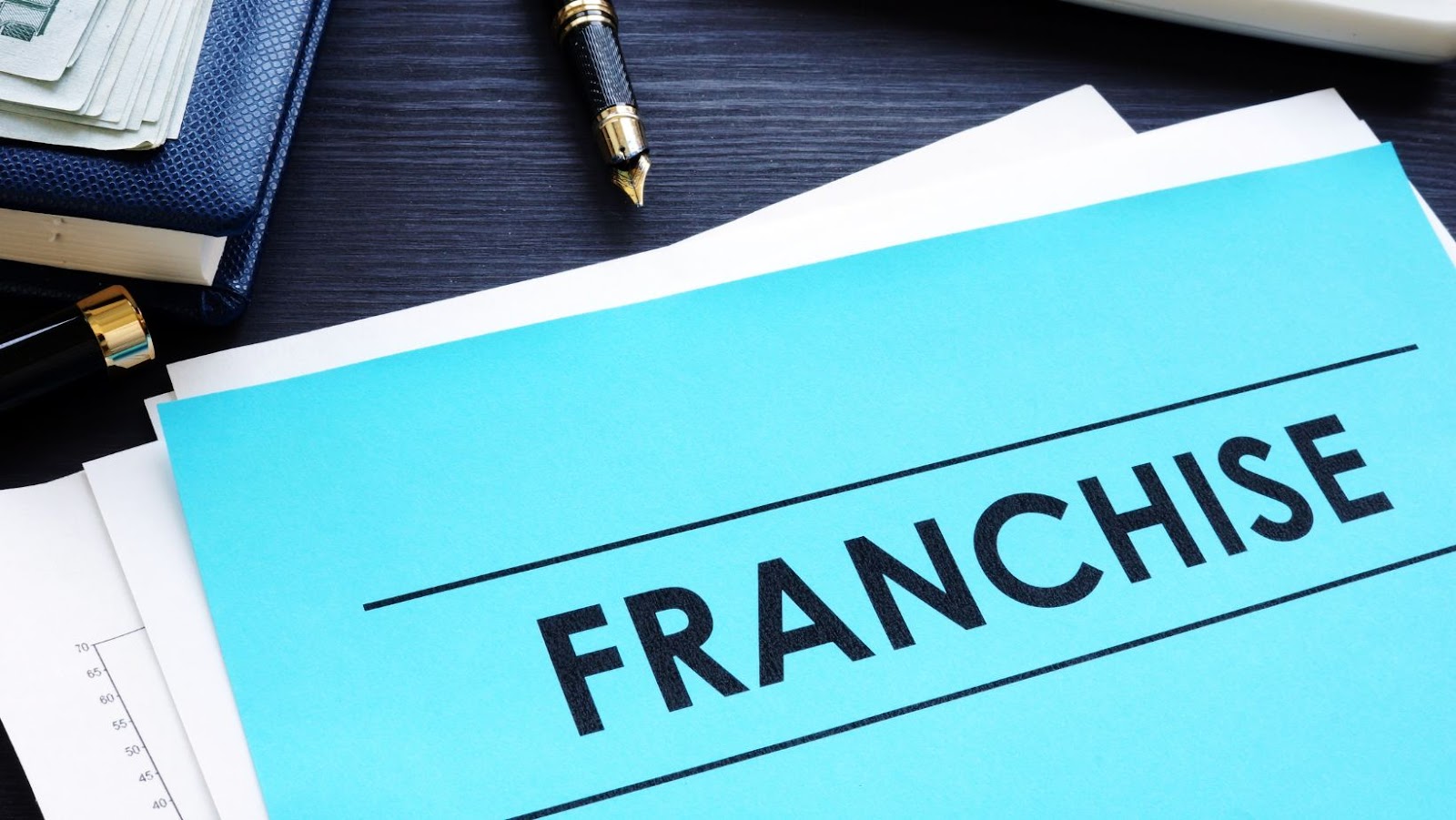
Are you considering franchising your business? Or perhaps you’re looking to become a franchisee? Either way, it’s important to understand the key difference between a franchisor and a franchisee.
A franchisor is the owner of a successful business model and brand. They offer the rights to use their business model and brand to franchisees, in exchange for a fee. A franchisee is an individual or company who purchases these rights from a franchisor.
There are many benefits to both franchisors and franchisees. For franchisors, they can expand their business quickly and without having to invest in marketing and other growth costs. For franchisees, they get to be their own boss and have access to a proven business model.
However, there are also some risks involved. For franchisors, they need to make sure their franchisees are successful in order to protect their brand and reputation. For franchisees, they need to be aware
What is a franchisor?
A franchisor is an individual or company that grants a license to an operator to do business under the franchisor’s trademark and business system. The relationship between the two parties is governed by a franchise agreement. The franchisor provides the franchisee with a package of documents that includes the operating manual, which details how the business must be run.
In exchange for these services, the franchisor receives a percentage of the revenues generated by the franchisee’s business. This arrangement allows the franchisor to expand its business rapidly and with relatively little capital investment. It also enables the franchisor to have proven methods of doing business and to extend its brand name into new markets.
The key distinction between a franchisor and a franchisee is that the latter bears all the risk and costs associated with operating the business, while the former enjoys dedicated customers and income from royalties.
What is a franchisee?
A franchisee is an individual or company that has been granted the rights to use the franchisor’s brand name, logo, and operating model in order to sell products or services. In return for these rights, the franchisee pays the franchisor an initial fee and ongoing royalties.
The relationship between a franchisor and a franchisee is governed by a Franchise Agreement, which outlines the terms of the relationship as well as the duties and obligations of each party.
Some of the key things that a Franchise Agreement will cover include:
– The term of the Agreement
– The territory in which the franchisee can operate
– The products or services that can be sold
– The price at which the products or services must be sold
– The marketing and advertising initiatives that must be used
– The training and support that will be provided by the franchisor
A franchisee is typically required to have significant experience in running their own business, as well as enough capital to cover the initial investment and ongoing costs associated with operating a franchised business.
Franchisor vs franchisee
In business, the franchisor-franchisee relationship is a common one. You may be familiar with some of the biggest Franchises in the world, such as McDonald’s, 7-11, or Ace Hardware. These companies are able to expand their reach by working with Franchisees who share their brand vision and agree to operate under their rules and procedures.
So what’s the difference between a Franchisor and a Franchisee? It’s simple:
-The Franchisor is the owner of the business model, trademark, and intellectual property.
-The Franchisee pays for the right to use these things in order to open and operate their own location following the rules set by the Franchisor.
For example, McDonald’s would be the Franchisor while an independently owned and operated McDonald’s restaurant would be a Franchisee.
Franchising can be a great way for businesses to expand quickly and efficiently while still maintaining quality control. It can also be a great opportunity for entrepreneurs who want to start their own business but don’t have an original idea or concept to bring to market. However, it’s important to understand the difference between a Franchisor and Franchisee before getting involved in any franchise agreement!
The benefits of being a franchisor
Franchisors benefit from economies of scale, as they can produce goods and services more cheaply than franchisees because of their larger scale of operations. They also benefit from the ability to pass on risk to franchisees and to extract rents from them. In addition, franchisors enjoy greater control over their brand and how it is used.
The benefits of being a franchisee
When you become a franchisee, you essentially become a business partner with the franchisor. This means that you will be able to benefit from the franchisor’s established reputation and brand name. In addition, you will also have access to their business model, which has been proven to be successful. And finally, as a franchisee, you will receive ongoing support from the franchisor in terms of marketing and operations.
Now let’s compare this to the benefits of being a franchisor. As a franchisor, you will have complete control over your business. In addition, you won’t have to share profits with a franchisee. And finally, as a franchisor, you will be able to expand your business much more quickly than if you were to do it on your own.
The risks of being a franchisor
Opening a franchise can be a great way to get into business. You get the benefits of being your own boss, but with the support of an established brand and model to follow. But before you open a franchise, it’s important to understand the difference between being a franchisor and a franchisee—and the risks that come with each.
Being a franchisor comes with a lot of responsibility. Not only do you have to establish and grow your brand, but you also have to support your franchisees as they open their businesses. This can be a lot of work, and it’s important to make sure you’re prepared for the commitment before you take on the role.
There are also financial risks associated with being a franchisor. You will likely need to invest money in marketing and advertising to attract new franchisees, and you may also be responsible for providing training and support materials. If your franchisees are unsuccessful, it could reflect poorly on your brand—and negatively impact your bottom line.
Ultimately, whether or not being a franchisor is right for you depends on your individual goals and circumstances. If you’re interested in growing a business quickly, franchising may be a good option. But if you don’t want to deal with the hassle of supporting other businesses, it might be better to stick with running your own company.
The risks of being a franchisee
Franchisees assume all the risks that come with any new business, such as:
-the risk that customers may not patronize the business;
-the risk that the franchisor may terminate the franchise agreement;
-the risk of poor management; and
-the risk of competition.
How to choose between being a franchisor or a franchisee
The decision of whether to be a franchisor or a franchisee is not one to take lightly. Both options come with their own set of pros and cons that need to be considered carefully before a decision is made.
As a franchisor, you will have more control over the franchise operation as a whole. This includes setting the rules and regulations that franchisees must follow, as well as having final say over marketing and advertising decisions. However, being a franchisor also comes with more responsibilities. You will be responsible for providing support to your franchisees and ensuring that they are adhering to your standards. You will also need to invest more time and money into the franchise upfront in order to get it off the ground.
Meanwhile, being a franchisee gives you the benefit of being your own boss while still having access to the support and resources of the franchisor. Rather than having to invest a large amount of money upfront, you will pay an initial fee plus ongoing royalties to the franchisor in exchange for use of their brand and business model. However, you will need to adhere to the rules and regulations set by the franchisor, which means you will have less control over day-to-day operations.
The decision of whether to be a franchisor or franchisee ultimately comes down to what you are looking for in a business opportunity. If you want more control and are willing to invest more time and money upfront, then becoming a franchisor may be the right choice for you. However, if you are looking for a less hands-on role with lower start-up costs, then being a franchisee may be a better fit.
The pros and cons of franchising
Franchising can be a great way for entrepreneurs to get started in business. It offers the opportunity to be your own boss, with the support of a proven business model and brand. But it’s not for everyone. Before you decide to franchise, it’s important to understand the pros and cons.
The pros of franchising:
-You can start your own business with the support of a proven brand and business model
-Franchises have a higher success rate than independent businesses
-You can benefit from the marketing power of a well-known brand
-You’ll receive training and support from the franchisor
-You’ll have access to a network of other franchisees
The cons of franchising:
-You’ll need to pay franchise fees and royalty payments to the franchisor
-You may have less freedom than you would if you were running an independent business
-If the franchisor goes out of business, your franchise could be at risk
FAQs about franchisors and franchisees
Are you considering purchasing a franchise? If so, you’re probably wondering about the difference between a franchisor and a franchisee.
A franchisor is the company that owns the rights to the franchise model and licenses it to individual business owners, who are known as franchisees. The franchisor provides support and guidance to franchisees, who are expected to adhere to specific brand standards in exchange for royalties, marketing fees, and other ongoing payments.
Franchisees benefit from the franchisor’s name recognition and proven business model, but they also assume a certain amount of risk. If the franchise fails to live up to its promises, or if the franchisee mismanages the business, they may lose their investment entirely.
To learn more about franchising, check out our FAQs below.
What is a franchisor?
A franchisor is a company that owns the rights to a particular franchise model and licenses it to individual business owners (franchisees). The franchisor provides support and guidance to franchisees in exchange for ongoing payments (such as royalties and marketing fees).
What is a franchisee?
A franchisee is an individual who purchases a license from a franchisor to operate their own business using the franchisor’s brand name and proven business model. Franchisees are typically expected to adhere to specific brand standards set by the franchisor.
What are some benefits of being a franchisee?
Franchisees benefit from the support of the franchisor as well as the recognition that comes with being part of an established brand. Franchisees also have access to proven business models and operational procedures, which can increase their chances of success.
What are some risks associated with being a franchisee?
If the franchise fails to live up to its promises or if the franchisee mismanages their business, they may lose their investment entirely. Franchisees also typically have less control over their businesses than independent business owners due to strict adherence to brand standards set by the franchisor.


